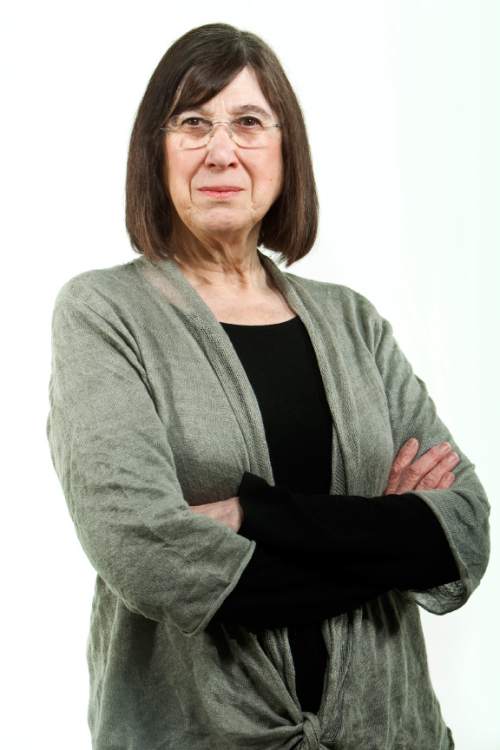This is an archived article that was published on sltrib.com in 2015, and information in the article may be outdated. It is provided only for personal research purposes and may not be reprinted.
Second of two parts
Utah's Reva Beck Bosone came from a long family line of Republicans but bolted from the GOP in 1932. "Perhaps life would have been easier for me had I become a Republican," she said in "Her Honor, the Judge," written by Beverly Beck Clopton. "But I couldn't do it and be honest."
Growing up around a dinner table infused with broad political views, Bosone was deeply influenced by Utah coal miners and their precarious role during the Great Depression. "To be true to myself," she said, "there was only one other thing to do — be a Democrat!"
The unconventional go-getter — one of Utah's first women attorneys in 1930 — became a two-term member of the Utah House of Representatives (1932, 1934). Addressing disparity among women workers, she helped institute the women's wage-and-hour law. She also worked to revise antiquated laws regarding labor, unemployment insurance and taxes.
"If you're a fair-minded person, you have to be for equality," Bosone said in a 1977 KUTV documentary. "Not only fair to the women but fair to the men because the men have had a bad deal in this life, too."
According to the Jan.1, 1935, Salt Lake Telegram, Bosone helped pave the way for progressive legislation.
"An amendment to the state constitution under which the Legislature is given the right to pass laws for the benefit of all employees is directly credited to her," the paper reported.
When Bosone was elected to a judgeship in Salt Lake City the next year, the Telegram described her arriving at police court wearing a "russet brown dress with an orange neckpiece," carrying a brown purse and replacing "her shell-rimmed glasses in favor of rimless spectacles."
"A lot of people say [police court] is not a place for women," Bosone said in a 1936 interview with the paper. "But I think a woman is peculiarly fitted to preside there. I hope to be fair and impartial and let facts be the judge."
Serving three terms in traffic court and the criminal division, Judge Bosone leveled stiff fines to traffic violators and had a role in improving the city's traffic-safety record. Her approach to alcoholism as a disease emphasized Alcoholics Anonymous and led to a government program for rehabilitation. In 1947, she became the first director of the Utah State Board for Education on Alcoholism.
In 1948, Bosone ran for Congress as a "Fair Deal" Democrat and campaigned with President Harry S. Truman during his "whistle stop tour" through Utah. Supported mostly by women's organizations, Bosone never asked for large donations.
"I didn't want to be indebted to anyone, even subconsciously," she recalled in Clopton's book.
Challenging the one-term incumbent Republican representative from Layton, Bosone personally spent $1,250 on her campaign — and won to become the first woman to represent Utah in Congress (1949-1951).
In another first, Bosone was appointed to the Interior and Insular Affairs Committee. She introduced a bill to grant American Indians "control and management" of their own affairs (it failed to pass) and promoted initiatives on reclamation and water and land conservation. She supported expanded coverage in Social Security, national healthcare and public housing for the military.
"We must abide by laws and when we think some are wrong, seek to change them — by law," the congresswoman said.
In 1949, according to U.S. House of Representatives archives, Bosone was among four who opposed the "Central Intelligence Agency (CIA) Act on the grounds it invested too much power in an agency that operated under minimal congressional oversight."
It bit her. Running against William A. Dawson again in 1952, Bosone was accused by her opponent of being a Communist sympathizer. She lost the election — but not her integrity or courage.
In 1961, the Utah woman who said "There isn't a darn bit of difference between men and women except for biological differences," became the judicial officer of the U.S. Post Office, and carried on.
Eileen Hallet Stone, the author of Hidden History of Utah, a compilation of her Salt Lake Tribune Living History columns, may be reached at ehswriter@aol.com. Special thanks to Diane Orr and Judith Dwan Hallet, co-producers of the KUTV documentary: Her Honor: The Judge.



